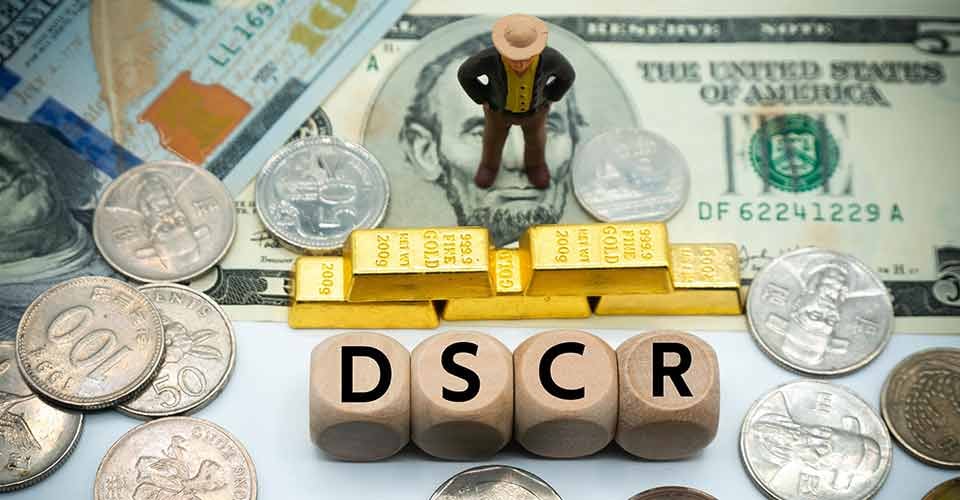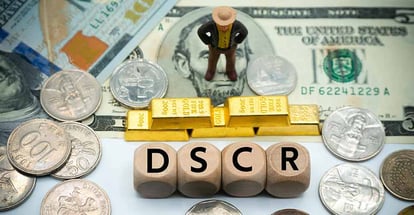Florida DSCR Loan FAQ and Changes in 2025
In 2025, significant changes are slated to impact the Debt Service Coverage Ratio (DSCR) Loan program in Florida. This article aims to provide a clear and concise overview of these upcoming changes and answer some frequently asked questions (FAQs) related to DSCR Loans in the state.
Whether you are a borrower seeking financial assistance or a financial institution participating in the program, understanding these changes is essential for informed decision-making.
Read on to gain insights into the upcoming modifications and navigate the DSCR Loan program effectively in Florida.
Table of Contents
- Florida DSCR Loan Changes in 2024
- DSCR Loan Frequently Asked Questions
- What are DSCR Loans?
- How is DSCR Calculated For These Loans?
- What is the Minimum Loan Amount For a DSCR Loan?
- What is the Minimum Credit Score For a DSCR Loan?
- Can I Live in a Property Bought With a DSCR Loan?
- What if it's a Short-Term Rental?
- Can a First-Time Investor Get a DSCR Loan?
- What is the Lowest DSCR Loan Down Payment?
- Can You Cash Out on a DSCR Loan?
- What Are the Downsides of a DSCR Loan?
- Bottom Line
Florida DSCR Loan Changes in 2025
In 2024, significant changes are set to reshape the landscape of Florida's Debt Service Coverage Ratio (DSCR) loan program.
These changes are poised to bring about a series of notable developments, each aimed at enhancing the accessibility and affordability of DSCR loans for a broader spectrum of borrowers:
Increased Loan Limits
One substantial alteration set to take effect in 2024 is the significant increase in DSCR loan limits in Florida. Previously, loan limits were capped at a lower threshold, but in the upcoming year, these limits will be expanded to $5 million.
Lower Credit Score Requirements
One of the key changes involves an expansion of eligibility criteria.
DSCR loans will be made available to a wider range of borrowers, including those with lower credit scores and individuals seeking financing for non-traditional properties such as mixed-use, short-term rental, and manufactured homes.
This broadening of eligibility opens new doors for individuals who may have previously faced barriers to access.
Better Rates and Terms Compared to 2023
The increased participation of lenders in the DSCR loan market will introduce heightened competition. As a result, borrowers can expect more competitive rates and improved loan terms. This shift promises to make DSCR loans a more cost-effective financing option.
Lower DSCR Ratio Requirement
Some lenders are lowering the Debt Service Coverage Ratio requirements for DSCR loans. This change could see lenders offering loans with DSCR ratios as low as 1.1 or even 1.0.
Such adjustments aim to accommodate borrowers with lower income levels or higher existing debt, making DSCR loans more accessible to a broader audience.
Loan Terms up to 30 Years
Certain lenders are extending DSCR loan terms, offering options with durations of up to 30 years. This extension of loan terms provides borrowers with a more extended timeframe for loan repayment, potentially resulting in reduced monthly payments and improved financial flexibility.

DSCR Loan Frequently Asked Questions
Now, let's delve into some frequently asked questions (FAQs) that provide essential insights into DSCR (Debt Service Coverage Ratio) loans.
These questions and answers will help clarify various aspects of DSCR loans, addressing common queries that borrowers and investors may have.
What are DSCR Loans?
DSCR loans, short for Debt Service Coverage Ratio loans, are a specialized type of financing primarily designed for residential investment properties in Florida.
These properties typically consist of one to four residential units, and in certain cases, they can extend to properties with up to ten units.
DSCR loans are primarily structured for inclusion in securitizations, which can either comprise entirely of DSCR loans or include them alongside other non-qualified mortgages (Non-QM).
Non-QM loans do not conform to the conventional guidelines set forth by quasi-governmental agencies like Fannie Mae or Freddie Mac.
One defining feature of DSCR loans is that they place full recourse responsibility on the borrower or a guarantor, especially if the borrower operates through an entity like a limited liability company (LLC).
In contrast to traditional mortgage loans, where a borrower's personal income and financial situation are crucial factors for qualification, DSCR loans predominantly rely on the investment property's potential to generate cash flow.
The loan's approval is contingent on the property's capacity to generate enough income to cover its debt service obligations.
Loans like commercial real estate loans or products offered by banks and credit unions with similar characteristics fall into separate categories.
Therefore, the term "DSCR loan" should be exclusively reserved for this specific non-QM securitizable loan product tailored for residential investment properties in Florida.
How is DSCR Calculated For These Loans?
Calculating the Debt Service Coverage Ratio (DSCR) for DSCR loans on residential investment properties in Florida follows a specific methodology that may differ from what investors in commercial real estate are accustomed to.
Here's a breakdown of the DSCR calculation for DSCR loans:
In the context of DSCR loans on residential investment properties, the DSCR is determined by dividing the property's rental income by what is commonly referred to as "PITIA."
PITIA stands for Principal + Interest + Taxes + Insurance + Association Dues. This calculation assesses the property's ability to cover all these essential costs.
It's worth noting that this approach to calculating DSCR is distinct from the method used in commercial real estate loans.
In commercial real estate, DSCR is computed by taking the Net Operating Income (which includes rental income minus all operating expenses) and dividing it by the debt service, which comprises principal and interest payments.
Operating expenses for commercial real estate loans typically encompass a broader range of costs, including repairs and maintenance, utilities, landscaping, management fees, and allowances for vacancy and credit loss.
As a result, DSCR calculations for DSCR loans on residential investment properties may yield more favorable (higher) ratios compared to those in commercial real estate.
While it is prudent for investors to adopt a conservative approach when underwriting rental properties by factoring in potential additional expenses and reserves, utilizing the relatively straightforward DSCR calculation method for DSCR loans can be a strategic choice for qualifying for financing.
This approach takes into account the property's ability to meet its essential financial obligations and is a hallmark of DSCR loans in the residential investment property sector.
What is the Minimum Loan Amount For a DSCR Loan?
The minimum loan amount for DSCR loans can vary from one lender to another. Typically, you can expect to encounter minimum loan amounts in the range of $75,000 to $150,000.
However, it's worth noting that certain lenders may be willing to offer DSCR loans with minimum loan amounts as low as $55,000.
These variations in minimum loan amounts underscore the flexibility that different lenders may exhibit in catering to the diverse needs of borrowers.
Therefore, when considering a DSCR loan, it's advisable to explore multiple lending options to find a loan amount that aligns with your specific investment goals and financial requirements.
Keep in mind that factors such as your creditworthiness, the property type, and the lender's policies can influence the minimum loan amount you may qualify for.
What is the Minimum Credit Score For a DSCR Loan?
The minimum credit score required for a DSCR loan can fluctuate significantly depending on the lender you choose to work with.
As a general guideline, lenders in this category may have varying criteria:
Stringent Lenders
Some lenders may impose a minimum credit score requirement as high as 680. Borrowers seeking loans from these lenders typically need to have a strong credit history to meet their eligibility criteria.
Aggressive Lenders
On the other end of the spectrum, there are lenders who adopt a more lenient approach, with minimum credit score requirements as low as 620 or even lower.
These lenders prioritize accessibility for borrowers who may have slightly lower credit scores but meet other qualifications.
The variation in minimum credit score requirements underscores the diversity within the DSCR loan market and reflects lenders' differing risk appetites.
When seeking a DSCR loan, it's essential to explore multiple lender options to find one that aligns with your credit profile and financial situation.
MakeFloridaYourHome can help you accomplish this.
Can I Live in a Property Bought With a DSCR Loan?
No, living in a property purchased with a DSCR loan is not permitted. DSCR loans come with stringent restrictions that explicitly prohibit borrowers from residing in the properties they acquire through this financing.
These restrictions are formalized in the loan documents, which often include a legal affidavit that borrowers must sign. By signing this affidavit, borrowers confirm that they do not currently reside in the property and have no intention of doing so in the future.
This prohibition applies even if the property consists of multiple units, such as a quadruplex with four separate units. In such cases, where three units may be occupied by third-party tenants, the owner of the property is still not allowed to live in the fourth unit.
The primary purpose of DSCR loans is to facilitate the acquisition and financing of residential investment properties for income generation through rental income. As such, these loans are structured to align with this investment strategy and are not intended for owner-occupancy.
Borrowers should be aware of and adhere to these occupancy restrictions when considering DSCR loans for their real estate investment endeavors.
What if it's a Short-Term Rental?
Even for investment properties secured by DSCR loans that are utilized as short-term or vacation rentals, the borrower is still bound by the same occupancy restrictions outlined in the legal documents. This includes a commitment not to occupy the property, whether it's for occasional personal use or otherwise.
However, there is a slight degree of flexibility when it comes to short-term rentals.
Investors who own such properties financed by DSCR loans are typically allowed to stay at the property for up to two weeks annually without violating the loan agreement.
This allows investors to use their short-term rental investment for brief personal stays while remaining compliant with the terms of the loan.
For individuals interested in vacation properties where they intend to spend more than two weeks a year residing in the property, DSCR loans may not be a suitable option. In such cases, "second home loans" are a viable alternative offered by many lenders.
Second home loans are specifically designed for properties that serve as both an investment and a personal vacation home, providing more flexibility for borrowers who wish to enjoy extended stays in their property.
Can a First-Time Investor Get a DSCR Loan?
Yes, first-time investors can typically obtain DSCR (Debt Service Coverage Ratio) loans, although specific rules and requirements may vary depending on the lender.
While a small number of DSCR lenders may have policies that exclude first-time investors, the majority are open to working with newcomers in the investment property arena.
For first-time investors seeking DSCR loans, it's essential to be aware of potential lender-specific restrictions or adjustments.
Some lenders may impose minor limitations, such as reducing the maximum loan-to-value (LTV) ratio by 5% or requiring a slightly higher minimum credit score for first-time investors.
However, these restrictions are often manageable, especially if the rest of the borrower's financial profile is robust.
It's important to note that several DSCR lenders have no specific restrictions when it comes to financing first-time investors. These lenders evaluate borrowers on a case-by-case basis, considering factors beyond just investment experience.
Factors like creditworthiness, property cash flow potential, and overall financial stability play significant roles in the loan approval process.
Therefore, if you are a first-time investor interested in DSCR loans, don't be discouraged. Explore various lender options to find one that aligns with your specific financial situation and investment goals.
With the right financial standing and investment plan, first-time investors can secure DSCR loans to kickstart their real estate investment journey.
What is the Lowest DSCR Loan Down Payment?
The minimum down payment requirement for DSCR (Debt Service Coverage Ratio) loans typically falls in the range of 15% to 20%, with the majority of lenders setting the bar at 20%.
This means that, in most cases, borrowers are required to provide a down payment equivalent to 20% of the property's purchase price.
However, some DSCR lenders offer a bit more flexibility and may accept a down payment as low as 15%. These lenders understand that individual financial circumstances can vary and may accommodate borrowers with slightly lower down payment capabilities.
Can You Cash Out on a DSCR Loan?
Yes, you can perform a cash-out refinance on a rental property financed with a DSCR (Debt Service Coverage Ratio) loan. In fact, a cash-out refinance can be a strategic financial move for real estate investors looking to expand their rental portfolio.
Here's how it works:
A cash-out refinance involves refinancing your existing DSCR loan for the rental property, increasing the loan amount, and receiving the difference in cash. This allows you to tap into the equity you've built up in the property over time.
The funds obtained through a cash-out refinance can be used for various purposes, including acquiring additional rental properties, making property improvements, or covering other investment-related expenses.
One of the advantages of using a DSCR loan for a cash-out refinance is the extended loan term, typically 30 years, at a fixed interest rate.
This can offer more favorable terms compared to personal loans or business lines of credit, making it an attractive option for real estate investors looking to leverage their rental property investments for further growth.
Before proceeding with a cash-out refinance, it's crucial to evaluate your financial goals, the equity available in your property, and your ability to manage the increased loan amount effectively.
Additionally, working with a knowledgeable financial advisor or lender experienced in DSCR loans can help you navigate the process and make informed decisions to support your investment strategy.
What Are the Downsides of a DSCR Loan?
DSCR (Debt Service Coverage Ratio) loans offer valuable financing opportunities for real estate investors, but they also come with certain downsides and risks that borrowers should be aware of.
Here are some of the potential drawbacks associated with DSCR loans:
Higher Interest Rates
One notable downside of DSCR loans is that they often come with higher interest rates compared to traditional mortgage loans. This is because DSCR loans are considered riskier investments for lenders.
Borrowers should be prepared for the possibility of paying a higher interest rate, which can impact the overall cost of financing over the life of the loan.
Higher Service Fees
In addition to higher interest rates, DSCR loans may also involve higher service fees. These fees can vary depending on the lender and the specific terms of the loan.
Borrowers should carefully review the fee structure to understand the total cost of the loan, which can increase with larger loan amounts.
Strict Qualification Criteria
DSCR loans typically have stringent qualification criteria. Lenders focus primarily on the property's cash flow potential rather than the borrower's personal income or financial situation.
As a result, borrowers may face stricter requirements related to the property's income-generating capacity, creditworthiness, and down payment.
Occupancy Restrictions
Borrowers are generally prohibited from occupying properties financed with DSCR loans. This restriction can limit the flexibility of using the property for personal use, including vacation or short-term stays.
Bottom Line
In 2024, Florida's Debt Service Coverage Ratio (DSCR) loan program is undergoing significant changes that will impact both borrowers and financial institutions.
These changes aim to enhance accessibility and affordability, making DSCR loans a more versatile financing option for investors.
Key changes include increased loan limits, lower credit score requirements, more competitive rates and terms, lower DSCR ratio requirements, longer loan terms, and the ability to cash out through refinancing.
While DSCR loans offer various advantages, including the potential for long-term investment growth, it's crucial to understand their downsides.
These may include higher interest rates, elevated service fees, strict qualification criteria, and occupancy restrictions that prohibit borrowers from living in the properties they finance with DSCR loans.
Whether you are a seasoned real estate investor or a newcomer to the world of investment properties, staying informed about these changes and understanding the intricacies of DSCR loans is essential for making well-informed decisions.
As the landscape evolves, borrowers and financial institutions should adapt to maximize the benefits of the DSCR loan program in Florida.
If you have specific questions or require guidance regarding DSCR loans, seeking assistance from experienced lenders and financial advisors can help you navigate this evolving financial landscape effectively.
With over 50 years of mortgage industry experience, we are here to help you achieve the American dream of owning a home. We strive to provide the best education before, during, and after you buy a home. Our advice is based on experience with Phil Ganz and Team closing over One billion dollars and helping countless families.

About Author - Phil Ganz
Phil Ganz has over 20+ years of experience in the residential financing space. With over a billion dollars of funded loans, Phil helps homebuyers configure the perfect mortgage plan. Whether it's your first home, a complex multiple-property purchase, or anything in between, Phil has the experience to help you achieve your goals.


 By
By  Edited by
Edited by 






